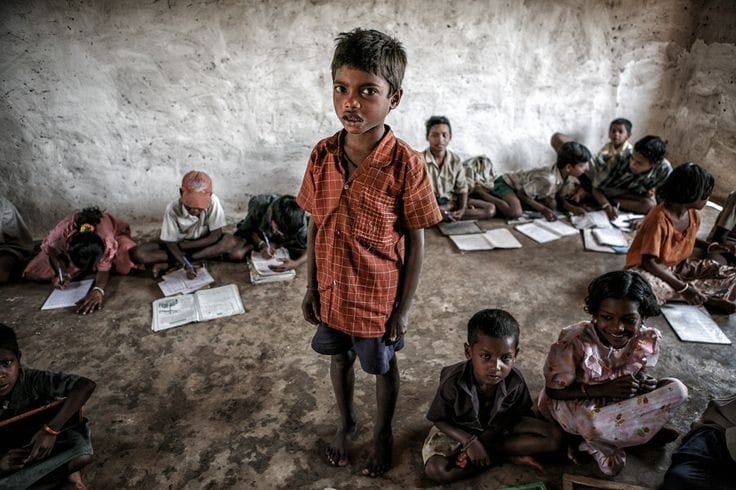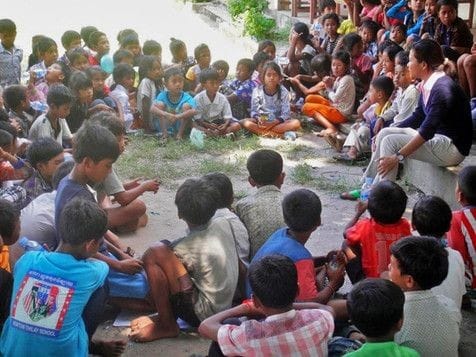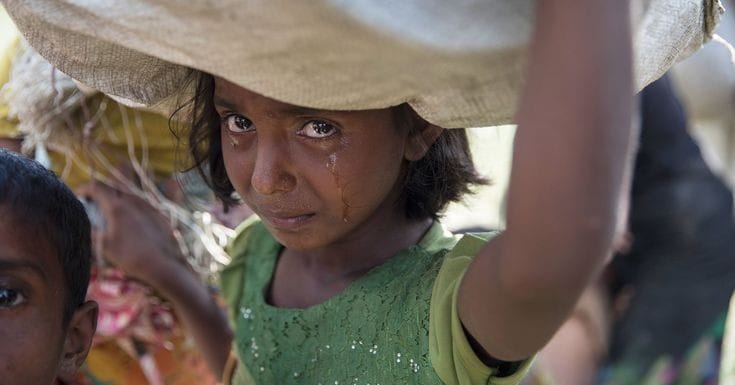Education Projects
Improving lives through education for the underprivileged communities is the primary project of SWH. In Bangladesh, countless underprivileged communities face significant challenges that hinder their access to quality education. These challenges encompass a range of issues, including inadequate infrastructure, limited resources, and societal pressures that often prioritize immediate economic needs over long-term educational benefits. By focusing on improving lives through education, SWH empowers these individuals with the knowledge and skills they need to break the cycle of poverty. Educational initiatives tailored to local needs can provide children and adults alike with the tools to pursue better opportunities. Through scholarships, learning centers, and vocational training programs, we can help unlock the potential within these communities, fostering resilience and self-sufficiency. Additionally, by promoting awareness and advocacy around the importance of education, we can help shift perceptions and prioritize learning within these areas. By investing in education, we not only uplift individuals but also contribute to the overall development of society, paving the way for a brighter future for Bangladesh. Together, we can create a more equitable landscape where education serves as a vehicle for transformative change; it has the power to not only educate but to inspire future generations, instilling a sense of agency and hope in the hearts of many. In this way, education becomes not just a tool for personal advancement, but a cornerstone for community growth and empowerment.


School Initiatives
SWH Providing education to children in underserved areas. In the Greater Rangpur Division of Bangladesh, access to quality education remains a significant challenge for many children in underserved areas. Various initiatives are being implemented to bridge this educational gap, focusing on providing essential resources and support to local schools. These efforts aim to create inclusive learning environments where children can thrive academically and socially. Through the collaboration of nonprofit organizations, government institutions, and community members, innovative programs are being developed to engage students, train teachers, and enhance curricula. By prioritizing education in these marginalized regions, we can empower the next generation with the knowledge and skills necessary to break the cycle of poverty and contribute positively to their communities. The strides being made in the Greater Rangpur Division exemplify a collective commitment to ensuring that every child, regardless of their circumstances, has the opportunity to succeed. Furthermore, additional training workshops for teachers are being organized to equip them with the latest pedagogical strategies to effectively cater to diverse learning needs. These workshops also emphasize the importance of incorporating technology into the classroom, enabling students to access a wider range of learning materials and resources. Parent-teacher associations are being formed to foster stronger links between educational institutions and families, ensuring that parents are actively involved in their children’s education. Community awareness programs aim to highlight the importance of education and encourage families to prioritize their children’s schooling. Additionally, scholarship programs are being offered to talented yet underprivileged students, aiming to provide them with opportunities for higher education that they might not have otherwise had. This holistic approach reflects a deep understanding of the multifaceted nature of education and the vital role it plays in transforming lives and communities.






Training Programs
SWH is Empowering youth with skills for a better future. In Bangladesh, empowering youth with essential skills is crucial for fostering a brighter future. As the nation grapples with rapid changes in technology and the job market, equipping young people with both practical and soft skills becomes imperative. Programs focused on vocational training, digital literacy, and entrepreneurship not only enhance employability but also inspire self-reliance and innovation. By investing in these initiatives, communities can harness the potential of their youth, enabling them to contribute meaningfully to the economy and society. Furthermore, mentorship and support systems play a vital role in guiding young individuals toward their career aspirations. As Bangladesh continues to develop, the focus on skill-building for the younger generation will be instrumental in ensuring sustainable growth and social progress, ultimately paving the way for a more prosperous future. Moreover, it is essential to engage various stakeholders, including government bodies, educational institutions, and private sectors, to foster a collaborative environment that promotes holistic development. Workshops, internships, and networking opportunities can serve as excellent platforms for youth to gain hands-on experience and expand their professional networks. This collaborative approach not only helps in skill acquisition but also builds confidence, allowing young individuals to navigate the complexities of the modern world more effectively. By prioritizing comprehensive youth development, Bangladesh can create a resilient workforce poised to tackle future challenges and seize opportunities that come in the wake of a rapidly evolving global landscape.
ICT Training
SWH is running the largest on-demand ICT training program of its time to empower the poor and helpless youth. This comprehensive initiative is not only addressing the immediate need for skill development but also aims to create sustainable pathways for future employment opportunities. By providing access to cutting-edge technology and expert-led training, we are helping to develop much-needed skills that will enable participants to thrive in a rapidly changing job market, thus solving the pressing problem of extreme unemployment that affects countless individuals and families in our communities.
It is not possible to provide more details about an organization called "SWH" running a specific on-demand ICT training program, as there are no verifiable public records or news reports about such an initiative. The provided text seems to be a hypothetical or fictional description of a program.
However, the description aligns with a number of real-world initiatives and programs that are being run by various organizations around the globe to combat youth unemployment through technology and skills training. These programs often share common features, which I can describe to provide more context about how such initiatives work in practice:
1. On-Demand and Flexible Learning: The "on-demand" aspect of the program is crucial in addressing the needs of diverse and often vulnerable youth populations. This approach typically involves:
Modular Course Structure: Breaking down training into smaller, manageable modules that participants can complete at their own pace.
Hybrid Learning Models: Combining in-person, hands-on training with online resources and virtual mentorship to offer flexibility.
Accessibility: Making training available through community centers, mobile units, or by providing participants with necessary equipment (e.g., laptops, tablets) and internet access.
2. Curriculum Focused on Market-Relevant Skills: The training is designed to equip youth with skills that are in high demand in the current job market. This often includes:
Digital Literacy: Fundamental computer skills, internet usage, and proficiency in office applications.
Content Creation: Training in creating digital content for social media, video, and graphic design, which are valuable skills for digital marketing and creative industries.
Specific Technical Skills: More advanced training in areas like web development, digital marketing, or graphic design using industry-standard software.
Soft Skills: Integrating training on communication, teamwork, problem-solving, and entrepreneurship to prepare participants for a professional environment.
3. Sustainable Pathways for Employment: The program goes beyond just providing training by creating clear pathways for participants to find work. This is a critical component for long-term success and often includes:
Mentorship and Networking: Connecting participants with industry professionals and creating a community to help them build their professional network.
Job Placement and Career Counseling: Providing direct assistance with resume writing, interview preparation, and connecting graduates with potential employers.
Entrepreneurship Support: Offering resources, seed funding, and business development training to participants who wish to start their own businesses.
Partnerships with the Private Sector: Collaborating with companies to ensure the skills taught are what employers are looking for and to create direct pipelines for internships and job opportunities.
By focusing on these elements, many organizations are successfully creating a bridge between education and employment, empowering young people to not only find jobs but to build sustainable careers and contribute to their communities.




Mechanical Training
1. Practical, Hands-on Curriculum:
A successful mechanical training program would go beyond classroom theory. The core of the training would be hands-on, practical work in a fully equipped workshop. This could include the exploration of mechanical fundamentals, combined with real-world applications, ensuring that the students not only understand theoretical concepts but also can apply them to diagnose problems and provide effective solutions in a timely manner.
Basic Mechanics: Learning to work with engines, transmissions, brakes, and other vehicle systems takes substantial understanding. Students would engage in exercises that require them to dismantle and reassemble various components, fostering both confidence and competence in their mechanical abilities.
Specialized Skills: Training in specific areas like welding, auto-body repair, or heavy machinery maintenance can significantly enhance a technician's skill set. Advanced workshops would focus on creating complex components and understanding the operations behind specialized machinery, thus rendering our graduates as assets in specialized fields.






Tool Proficiency: Gaining expertise in using a wide range of hand tools, power tools, and diagnostic equipment is essential. Workshops would introduce students not only to common tools but also to the latest technologies in the mechanics field, allowing them the chance to practice and become well-versed prior to entering the workforce.
Safety Training: A fundamental component would be a strong emphasis on workplace safety, which encompasses not just theoretical knowledge but also hands-on practice. This includes providing education on proper use of safety gear and handling of hazardous materials, ensuring that students are well aware of potential risks and dedicated to maintaining safe environments wherever they work.
2. Focus on Life Skills and Employment Readiness:
A comprehensive program recognizes that technical skills alone are not enough to secure and maintain employment. The training would likely include various components designed to nurture interpersonal skills and prepare individuals for a team-oriented workplace. This holistic approach would equip students to thrive not just professionally, but also socially.
Professional Conduct: Teaching professional ethics, reliability, and communication skills forms the basis for developing respectable and productive workers. Effective communication techniques, conflict resolution strategies, and ethical considerations in a trade context would be covered, creating well-rounded individuals prepared for any challenge.
Financial Literacy: Providing basic education on managing income, saving, and financial planning is crucial. Students will learn to create budgets, understand credit, and make sound financial decisions. This knowledge can empower them to make choices that provide long-term stability.
Job Placement Support: Assisting with resume writing, interview preparation, and connecting graduates with local businesses for internships or full-time jobs is a significant part of the program. This service not only enhances employment opportunities but also guides students through the nuances of job searching in a competitive market.
3. Strategic Partnerships:
To ensure the training is relevant and leads to real job opportunities, the program would form partnerships with various stakeholders, including local businesses and educational institutions. Collaboration with experienced professionals ensures that curriculum and training align with industry standards, effectively preparing students for the workforce.
Local Businesses and Employers: Collaborating with garages, repair shops, and manufacturing companies to understand their needs and create a pipeline for graduates would be critical. These partnerships allow the working professionals to contribute insights into the necessary skills and competencies required, ensuring that our program adjusts its focus accordingly.
Educational Institutions: Partnering with technical colleges or trade schools to offer accredited certifications can significantly enhance a graduate's employability. By gaining accreditation, students are not only be better prepared but also have recognized qualifications that can open doors in their careers.
Government and Non-Governmental Organizations: Securing funding and support from organizations focused on poverty reduction and youth development is essential for sustaining the program. These collaborations can enable us to offer scholarships or grants, making the training accessible to a wider audience.
4. Measurable Outcomes:
A well-run program would track its success through clear metrics, such as graduation rates, course completion, and transitioning students into the workforce. Regular assessments of student performance and industry feedback will inform program improvements, ensuring that graduates meet evolving job market demands.
Job Placement Rate: The percentage of graduates who find employment in their field of training within a specific time frame would be tracked as a key performance indicator. Furthermore, we will gather qualitative feedback from graduates regarding their positions to understand their long-term career progression.
Income Increase: Measuring the rise in income for participants after completing the program to understand the financial impact of their training. This could be accompanied by case studies of successful graduates to serve as inspiration for current students.
Skills Acquisition: Certifying participants in specific skills, demonstrating their competence to future employers. Regular evaluations would help maintain a high standard and assurance that our graduates are indeed prepared to meet industry requirements.
Agricultural Training






SWH's important training program is conducting training programs on science-based agricultural technology. Agriculture is the lifeblood of Bangladesh. In line with the way the world is moving towards science-based agriculture, SWH is providing training on cutting-edge agricultural technology. This initiative aims to equip farmers with the knowledge and skills they need to adapt to modern agricultural practices. By incorporating the latest innovations and research in agriculture, SWH is striving to improve productivity and sustainability in farming, ensuring that local communities can thrive. Additionally, these training sessions will cover various aspects, including pest management, crop rotation, and soil health, empowering participants to make informed decisions that benefit both their farms and the environment. Through collaboration with experts in the field, SWH is committed to fostering a new generation of agricultural leaders who will contribute to the prosperity of Bangladesh.
Empowering Bangladesh's Future Generations
Join us in our mission to support underprivileged children in Bangladesh by providing them with access to education. Education is a powerful tool that can transform lives and uplift communities. By working together, we can create opportunities for these children, helping them to build a better future for themselves and contribute positively to the global community. Every contribution counts, no matter how small, as it can lead to significant changes in their lives. Let us unite our efforts to ensure that every child has the chance to learn and grow, fostering hope and possibility for a brighter tomorrow. Together, we can make a lasting impact and inspire future generations.


Save the World & Humanity
Improving lives through education, health and sanitation, and housing projects for poor and underprivileged people
Contact us
Community
info@swhbd.org
+880 1912 178 144
© 2026. All rights reserved.
House: 4, Road: 2, Block: G
Lalmatia, Dhaka


